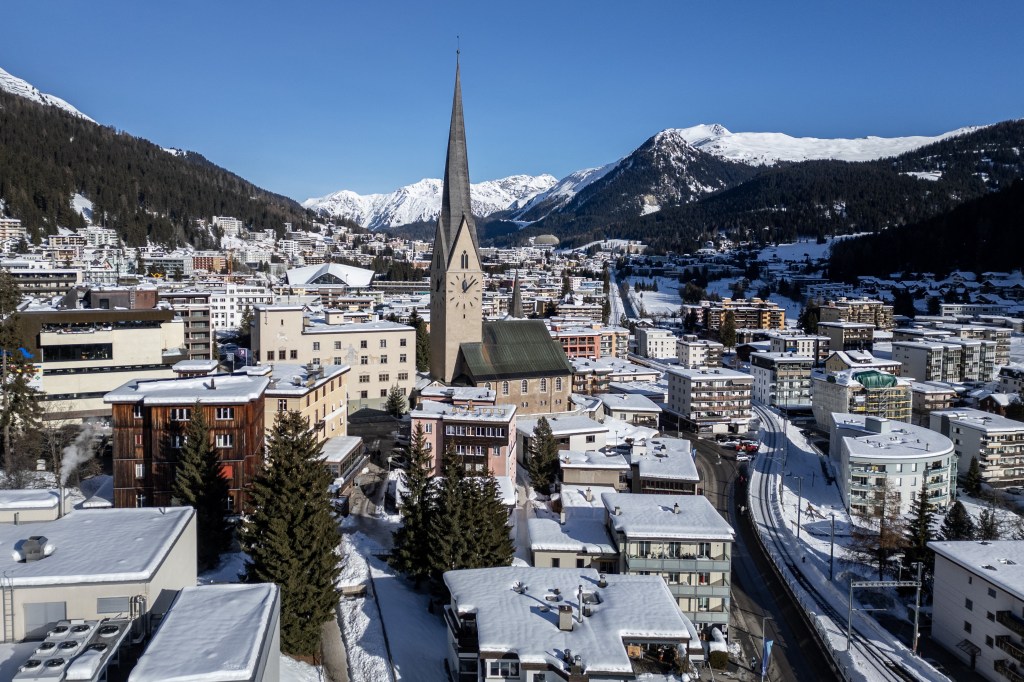According to the WEF, the 54th Annual Meeting of the World Economic Forum (WEF) in Davos will “convene under the theme Rebuilding Trust to provide the crucial space to step back and focus on the fundamental principles driving trust, including transparency, consistency and accountability”. It clarifies trust at three levels: into the future, within societies and among nations. Sophia Hamblin Wang, co-founder and COO of MCi Carbon, is heading to the event for the second time, joining a panel on debunking carbon pricing myths.
She says the theme is about integrity. “Trust has been eroded over time, with some players creating uncertainty around whether climate change even needs action, and also playing climate delay tactics,” Hamblin Wang says. “When we’re building technology in this space, we need to be bringing along not only industry, but also policymakers and governments and the trust and support of communities that will ultimately be adopting the technologies,” she says.
2024 also marks the potential tipping point for that 1. 5-derees target. In fact, January this year is on track to be so warm, that for the first time in a 12-month period, global warming may breach the 1.
5-degrees Paris Accords threshold, which scientists strongly urge us against. “This next decade is going to take a lot of courage, vision, coordination, and consistency to keep that 1. 5-degree target alive,” she says.
“That is ultimately the North Star that needs courageous action, investment today and collaboration across industries, sectors and countries. ” Last year, global leaders discussed financial support for Ukraine, getting inflation down to 2%, and, of course, how big companies – and countries – can meet net-zero targets. Looking at the agenda this year, topics on the schedule include interest rates, generative AI, supply chains and, once again, the climate crisis.
“We have lots of uncertainty in the world,” Hamblin Wang says. “Inflation, trade tensions, and the need for climate action and remediation. In a constantly changing global environment, we have this really important decade of climate action that’s necessary in order for us to meet our net-zero by 2050 targets.
” About 2,500 delegates are set to gather in Davos, Switzerland, for the week beginning January 15. That includes an estimated 1,600 business leaders, including more than 900 of the world’s top CEOs and chairs; more than 150 global innovators, tech pioneers and unicorns; more than 200 members of the Forum’s Global Shapers and Young Global Leaders; 150 experts and heads of the world’s leading universities; and more than 40 labour, NGO and religious leaders from civil society. Among them, those expected to attend include Li Qiang , Premier of the People’s Republic of China; Emmanuel Macron , President of France; Ursula von der Leyen , President of the European Commission; Volodymyr Zelenskyy , President of Ukraine; Antony Blinken, US Secretary of State; António Guterres , UN Secretary-General; and Tedros Adhanom Ghebreyesus , Director-General, World Health Organization.
But one such innovator is MCi Carbon, which was chosen to represent carbon utilisation and the circular economy. MCi Carbon, which launched in 2013 with the goal of capturing 1 billion tonnes of CO2 by 2040, uses mineral carbonation technology to take CO2 emissions and transform them into carbon powders and low-carbon-footprint silica products, which can then be used in construction and manufacturing. “If we can capture CO2 in hard-to-abate sectors, and transform it into something that can be used in cements and plaster boards or dry-wall, then that’s a very elegant solution that can represent a brand new business model – and new industry – for economies to create in this transition period.
” MCi Carbon won the top gong for a clean-tech pitch at COP26 in Glasgow in 2021, after securing a $14. 6 million grant from the Australian government to build its demonstration facility in Newcastle, called Myrtle. It’s since taken on private investment from the world’s largest refractories company, RHI Magnesita, and Japanese investment bank, Mizuho Bank.
The CEOs of BHP, Fortescue, South32 and Rio Tinto are expected to attend, and Hamblin Wang says this represents significant opportunity for Australian companies to learn from their global peers. “There’s ultimately a really profound opportunity for global governments to listen to what’s working in different jurisdictions and be able to ultimately create their own versions of the success stories,” she says. Look back on the week that was with hand-picked articles from Australia and around the world.
Sign up to the Forbes Australia newsletter here or become a member here. More from Forbes Australia By Alex Konrad Forbes Staff By Yasmine Zhai By Molly Bohannon.
From: forbes
URL: https://www.forbes.com.au/news/innovation/what-to-expect-davos-2024/



